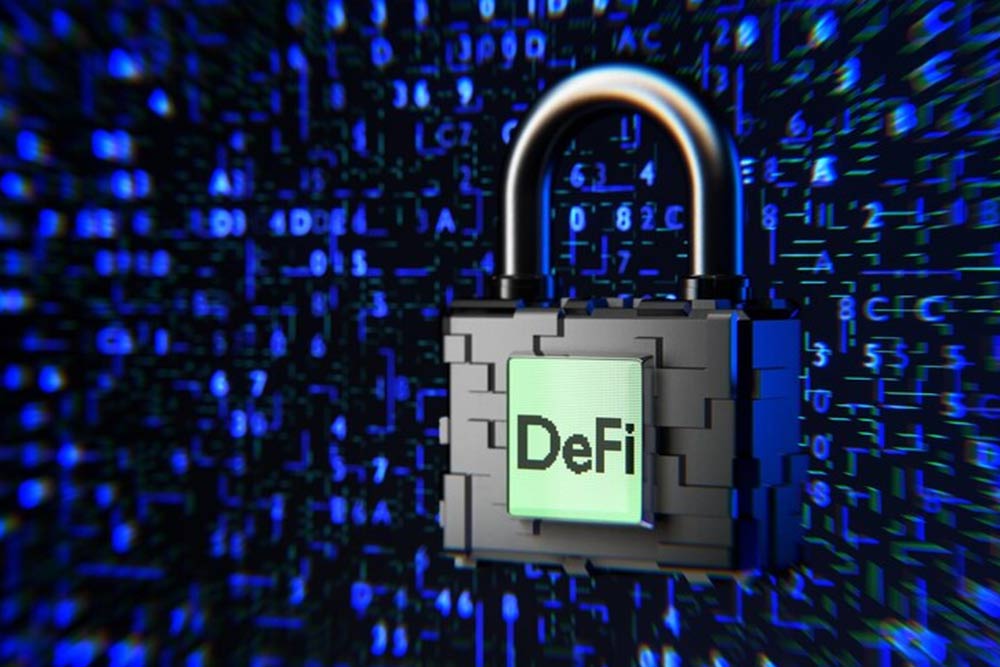Introduction
Decentralized Finance (DeFi) has emerged as a transformative force in the world of finance, offering innovative solutions that challenge traditional banking systems. However, with the rise of DeFi-like banks operating on decentralized networks, regulatory concerns have come to the forefront. In response to the rapid growth of these financial entities, the U.S. Senate has introduced a new bill aimed at regulating DeFi-like banks. This article delves into the details of the proposed legislation, its potential impact on the DeFi ecosystem, and the broader implications for the future of decentralized finance.
The Growth of DeFi-Like Banks
Decentralized Finance has revolutionized the way financial services are delivered, offering decentralized lending, borrowing, yield farming, and trading without the need for intermediaries. A new wave of DeFi-like banks has emerged, operating on blockchain networks and providing a range of financial services similar to traditional banks, but with greater transparency and efficiency.
These DeFi banks are built on smart contract platforms and utilize decentralized applications (dApps) to facilitate transactions and manage user funds. Their rising popularity has garnered attention from both users seeking financial autonomy and regulators concerned about potential risks.
The Proposed Senate Bill
The new U.S. Senate bill aims to introduce regulatory oversight on DeFi-like banks, a step that proponents argue will bring much-needed consumer protection and risk management to the DeFi space. The bill seeks to apply certain banking regulations, similar to those governing traditional banks, to DeFi entities operating within the United States.
Key provisions of the proposed bill include:
- KYC and AML Compliance: DeFi-like banks would be required to implement Know Your Customer (KYC) and Anti-Money Laundering (AML) measures to verify the identities of their users and monitor transactions for suspicious activities.
- Capital Requirements: The bill aims to introduce minimum capital requirements for DeFi-like banks to ensure they maintain sufficient reserves to safeguard against potential losses.
- Consumer Protection: DeFi entities would be mandated to establish mechanisms for customer dispute resolution and implement measures to protect users from fraudulent activities.
- Regulatory Reporting: The bill proposes that DeFi-like banks regularly report their financial activities and adhere to audits by regulatory authorities to ensure compliance.
Potential Impact on DeFi Ecosystem
The introduction of regulatory oversight on DeFi-like banks could have several implications for the DeFi ecosystem:
- Compliance Costs: Smaller DeFi projects and startups may face challenges in meeting the compliance requirements set forth by the bill. The increased costs associated with implementing KYC, AML, and regulatory reporting may deter some from entering the space.
- Market Consolidation: Larger DeFi entities with the resources to comply with the regulations may see increased market dominance, potentially leading to market consolidation.
- Mainstream Acceptance: Regulatory oversight could attract institutional investors and traditional financial players, bringing mainstream acceptance and greater liquidity to the DeFi space.
- Innovation and Adaptation: DeFi projects may need to adapt their decentralized infrastructure to accommodate the proposed regulatory requirements, leading to a balance between compliance and innovation.
Conclusion
The introduction of a new U.S. Senate bill seeking to regulate DeFi-like banks signals the growing importance of the DeFi ecosystem in the global financial landscape. While the proposed legislation aims to bring greater consumer protection and risk management to the DeFi space, its potential impact on innovation and market dynamics cannot be overlooked. As the bill undergoes scrutiny and debate, stakeholders in the DeFi community, regulatory bodies, and lawmakers will need to work together to strike a balance that fosters responsible growth, protects consumers, and encourages continued innovation within the decentralized finance industry.

